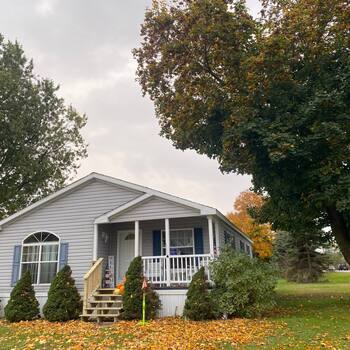How to Start a Mobile Home Park Business in 2025
Article Featured
Investing in a mobile home park business can be lucrative in 2025. With increasing housing demand and affordability concerns, mobile home parks provide an accessible living solution for many Americans. This guide will walk you through the steps of starting a successful mobile home park business, covering investment strategies, startup costs, and key considerations.
Why Invest in a Mobile Home Park?
High Return on Investment (ROI)
A well-managed mobile home park investment can yield higher returns compared to traditional real estate investments. Lower tenant turnover and steady demand make mobile home parks a stable asset class.
Affordable Housing Demand
With the rising cost of single-family homes and apartments, mobile home communities have become an essential part of the affordable housing market. Investing in this sector ensures a steady stream of tenants.
Lower Operating Costs
Unlike traditional rental properties, mobile home parks typically involve leasing land rather than maintaining individual housing units. This reduces maintenance costs and increases profitability.
Steps to Start a Mobile Home Park Business
Step 1: Research the Mobile Home Park Business Model
Before investing, it’s crucial to understand how the mobile home park business model works. A park owner typically generates income through:
- Lot rent: Leasing plots of land to mobile home owners.
- Renting out park-owned homes.
- Utility markups and service fees.
Step 2: Choose the Right Location
Selecting a strategic location is key to the success of your mobile home park investment. Consider the following factors:
- Population Growth: Areas with increasing population trends ensure long-term demand.
- Employment Opportunities: Locations with strong job markets attract more residents.
- Zoning and Regulations: Ensure the area allows mobile home parks and meets local requirements.
Step 3: Calculate Mobile Home Park Startup Costs
Startup costs can vary significantly depending on land prices, infrastructure needs, and regulatory requirements. Typical costs include:
- Land Acquisition: $10,000 - $100,000 per acre depending on location.
- Infrastructure Development: Includes roads, utilities, and sewage systems ($500,000 - $1,500,000).
- Legal and Permit Fees: Varies by state but can range from $10,000 - $50,000.
- Marketing and Initial Operations: Budget at least $20,000 for advertising and operational setup.
Step 4: Secure Financing
Most investors use a combination of funding sources to finance their mobile home park business, including:
- Bank Loans: Traditional mortgage loans or commercial real estate loans.
- Seller Financing: Some sellers offer direct financing, reducing the need for banks.
- Private Investors: Partnering with real estate investors can help raise capital.
- Government Grants and Programs: Check with HUD and USDA for possible funding options.
Step 5: Obtain Necessary Permits and Licenses
Each state and municipality has specific requirements for mobile home parks. You will need:
- Land use and zoning approvals.
- Business operation licenses.
- Environmental and safety permits.
Check with your local planning department or visit HUD for detailed regulatory guidelines.
Step 6: Develop Infrastructure and Utilities
Building a well-planned mobile home park requires setting up essential utilities such as:
- Water and sewer systems.
- Electricity and gas connections.
- Roadways and common areas.
Hiring experienced contractors can ensure compliance with state regulations and enhance park quality.
Step 7: Establish a Marketing and Tenant Acquisition Plan
Attracting tenants is crucial for the profitability of your mobile home park. Effective strategies include:
- Online Advertising: Utilize platforms like Zillow, Craigslist, and social media to list available lots.
- Local Outreach: Partner with local businesses and housing agencies to attract potential tenants.
- Referral Programs: Offering incentives to current residents for referring new tenants can boost occupancy rates.
For listings of available mobile home lots and properties, you can explore Mobile Home Lots for Sale and Mobile Homes for Sale.
Managing and Growing Your Mobile Home Park Business
Ongoing Maintenance and Management
A well-maintained park attracts long-term tenants and increases property value. Key management tasks include:
- Regular road and utility maintenance.
- Enforcing park rules and regulations.
- Hiring staff for property management and tenant relations.
Expanding Your Mobile Home Park
Once your park reaches full occupancy, consider expanding by acquiring adjacent land or investing in additional mobile home parks. Scaling your business can significantly increase your revenue stream.
By following this comprehensive guide, you can successfully establish and grow your mobile home park business in 2025, ensuring long-term profitability and a stable investment.
Related Content
How to Make Money in the Mobile Home Park BusinessWhy Time Magazine Loves The Mobile Home Park Business





















